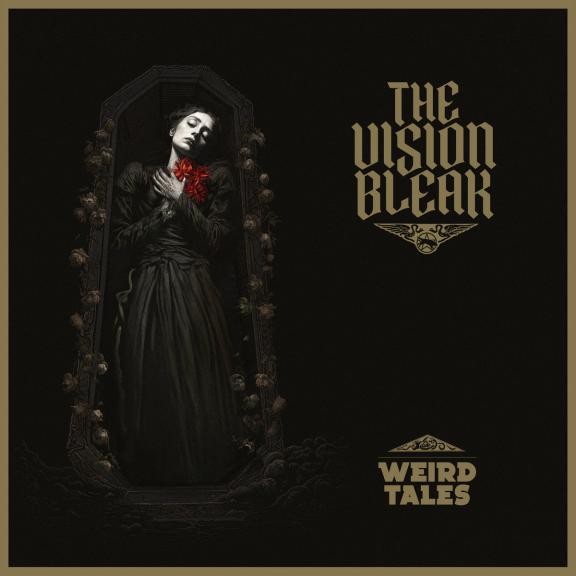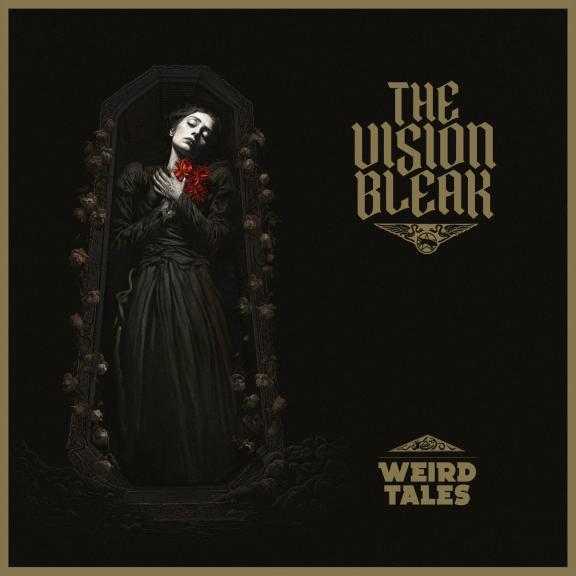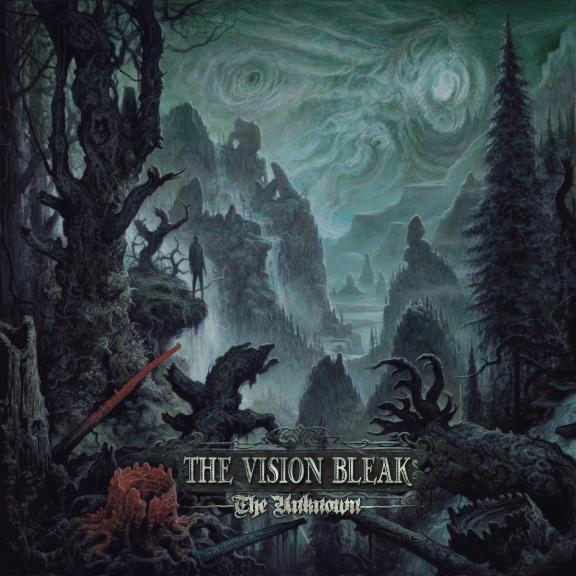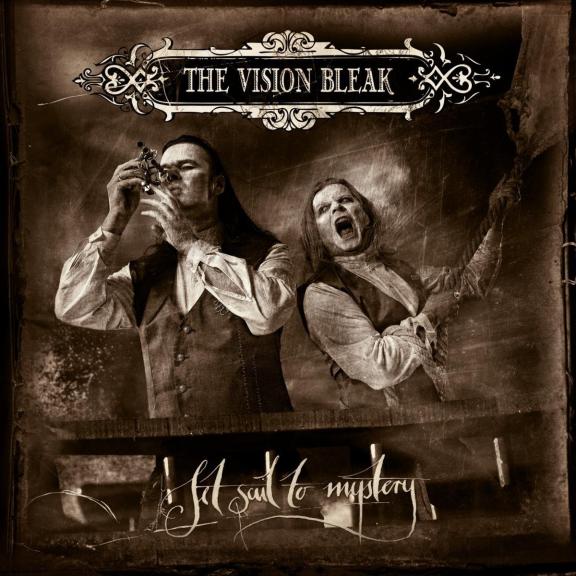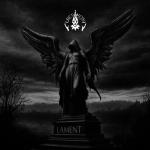Published from 1923 until the 1950s, Weird Tales saw some fine dark pens pass through its pages: Lovecraft, of course, but also Clark Ashton Smith, Abraham Merritt, Robert E. Howard... and even Tennessee Williams. The Vision Bleak, who have always drawn on film and literature to bring their gothic universe to life, borrow their new album's name from the famous publication to pay tribute to "dark imaginations" in general, including, of course, those not published there, such as Edgar Allan Poe or Lafcadio Hearn. This album, their first since The Unknown eight years ago, takes the form of a single track divided into chapters that unfold like a collection of macabre, mysterious short stories.
Despite its heaviness, we travel through Weird Tales with a fluidity aided both by the conciseness of the tracks (almost never exceeding four minutes) and the melodies serving as transitions from one chapter to the next. It's in this respect that The Vision Bleak once again excels, as in the eerie, heady melody that opens the album and carries us off to In Rue d'Auseil. Lovecraft's short story The Music of Erich Zann is the inspiration here and, with its violinist haunted by unspeakable visions and playing otherworldly music, lends itself particularly well to an entry into the album's universe.
With The Unknown, The Vision Bleak was more melancholy than ever. Weird Tales continues in this spirit (The Undying One) and toughens the tone quite sparingly (it's not until the fourth track, Once I Was a Flower, a reference to a Hearn poem, that the vocals mutate into growls and the guitars bite back with a vengeance). The Vision Bleak are careful with their effects, sparing their threats to give them more weight. More than ever, the band fine-tunes its hazy atmospheres (The Graveyard by Nyght in a Thunderstorm, where a funereal heaviness crushes us during a delectable thunderstorm). It's when the tempo slows down that Weird Tales exudes the solemnity of a death sentence, as the declamations of Markus Stock and Tobias Schönemann, both executioners and narrators, fall with an otherworldly inertia supported by both guitar laments and discreet synth layers.
The journey through Weird Tales draws to a close as the doom/death To Drink from Lethe invites us to drown in the dark waters of the infernal river. By working on the links between its tracks, the band has more than ever accentuated the theatrical aspect of its music, and the album unfolds like the scenes of a grandiloquent and majestic grand-guignoleque play. Emphatically, The Vision Bleak summons spectres and entities from behind the veil, provoking shivers as elegant as they are delicious. The seance has more gusto than ever.

